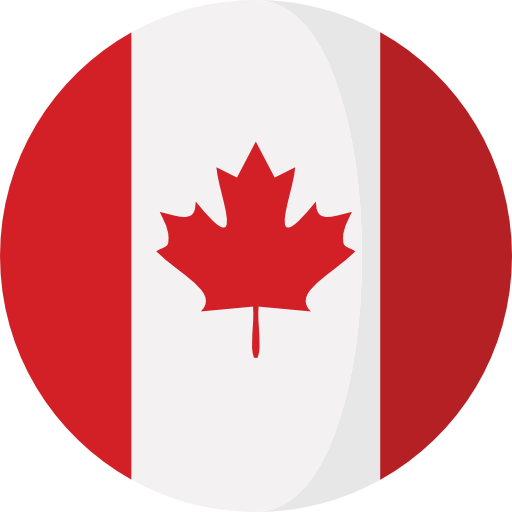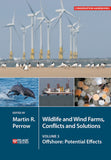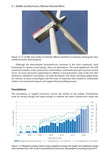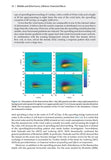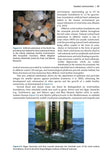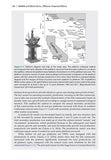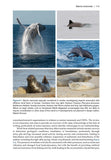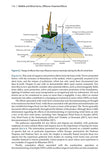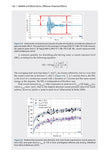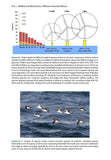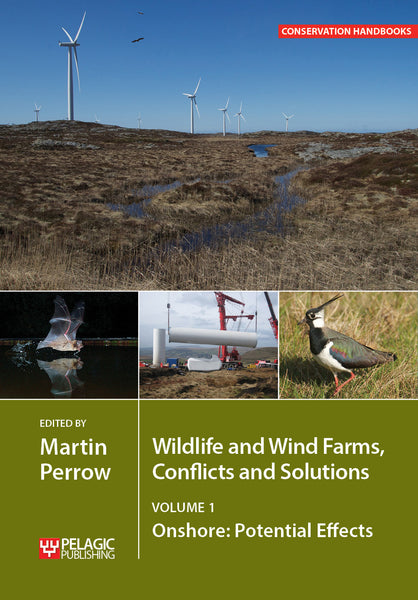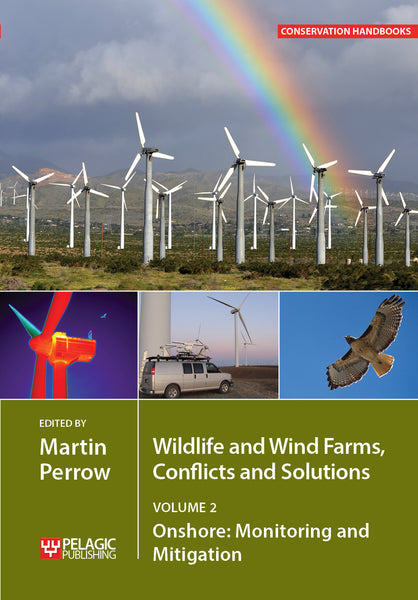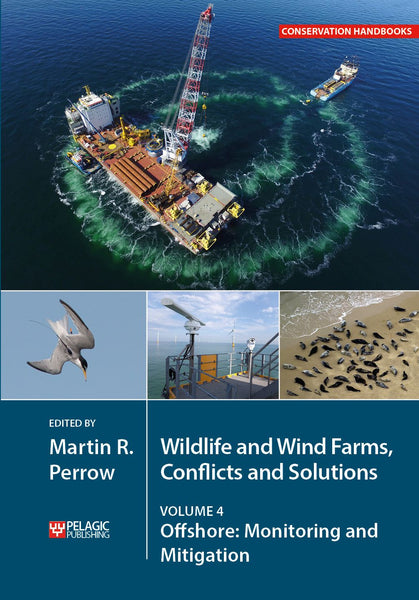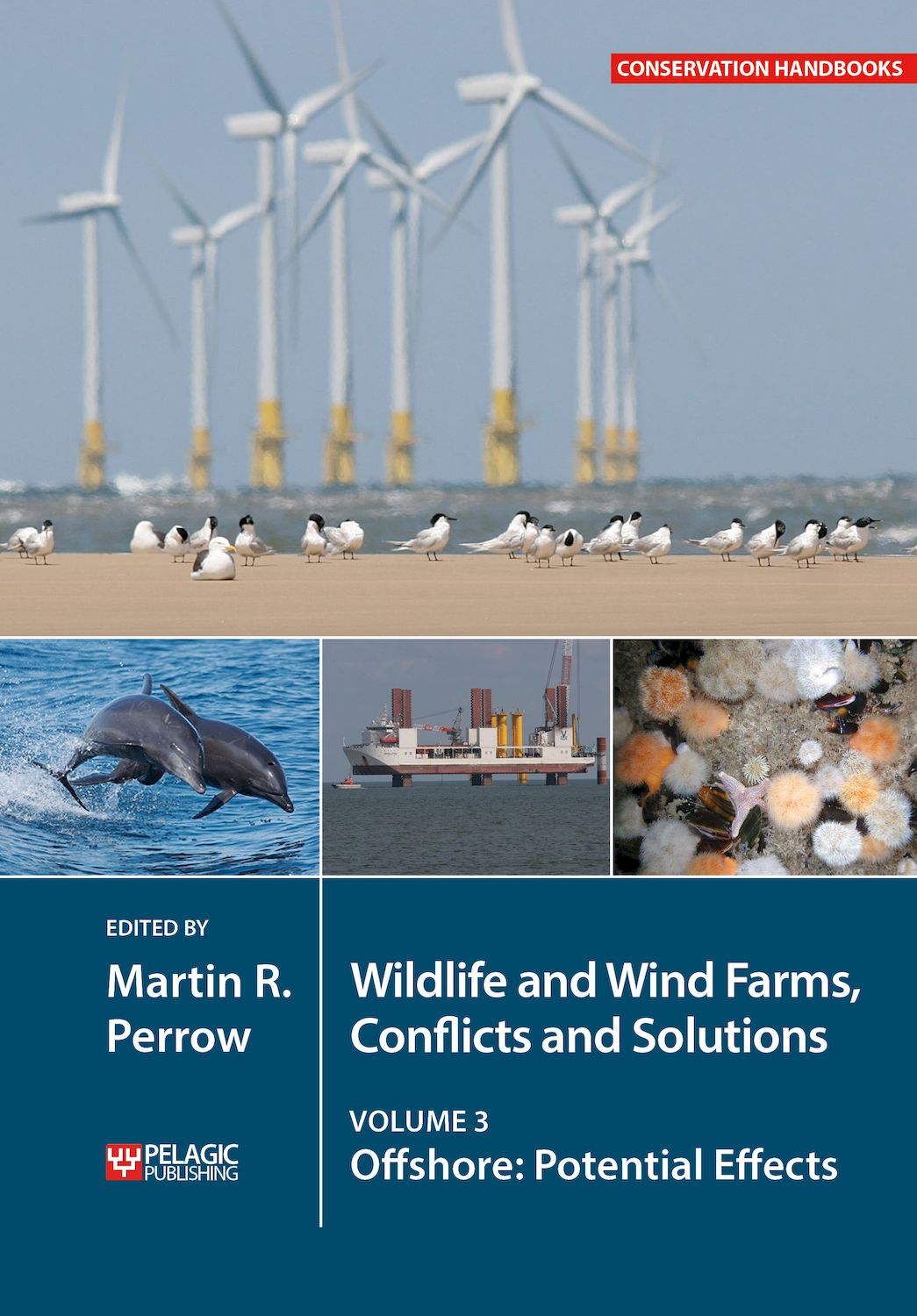
Wildlife and Wind Farms - Conflicts and Solutions, Volume 3
Offshore: Potential Effects
- State-of-the-science guide to monitoring and mitigating the adverse impacts wind farms have on wildlife
- Contributions from leading academics and practitioners in the field of wind farm studies
- Informative figures, tables, colour photographs and detailed case studies throughout
- bats
- birds
- Conservation
- ecology
- wildlife
- wind farms
- wind turbine
Description
Wind farms are an essential component of global renewable energy policy and the action to limit the effects of climate change. There is, however, considerable concern over the impacts of wind farms on wildlife, leading to a wide range of research and monitoring studies, a growing body of literature and several international conferences on the topic.
This unique multi-volume work provides a comprehensive overview of the interactions between wind farms and wildlife.
Volume 3 documents the current knowledge of the potential effects upon wildlife during both construction and operation of offshore wind farms. An introductory chapter on the nature of wind farms and the legislation surrounding them is followed by a series of in-depth chapters documenting effects on physical processes, atmosphere and ocean dynamics, seabed communities, fish, marine mammals, migratory birds and bats and seabirds. A synopsis of the known and potential effects of wind farms upon wildlife concludes the volume.
The authors have been carefully selected from across the globe from the large number of academics, consultants and practitioners now engaged in wind farm studies, for their influential contribution to the science. Edited by Martin Perrow and with contributions by 30 leading researchers including: Göran Broström, Steven Degraer, Mike Elliot, Andrew Gill, Ommo Hüppop, Georg Nehls and Nicolas Vanermen. The authors represent a wide range of organisations and institutions including the Universities of Gothenburg, Hamburg and Hull, Alfred Wegener Institute, Cefas (UK), Research Institute for Nature and Forest (INBO), Royal Belgian Institute of Natural Sciences, Vattenfall and several leading consultancies.
Each chapter includes informative figures, tables, colour photographs and detailed case studies, including some from invited authors to showcase exciting new research.
Other volumes:
Volume 1: Onshore: Potential Effects (978-1-78427-119-0)
Volume 2: Onshore: Monitoring and Mitigation (978-1-78427-123-7)
Volume 4: Offshore: Monitoring and Mitigation (978-1-78427-131-2)
Readership
This book is designed as the definitive guide on the topic for practitioners, researchers, managers and planners as well as students in higher education engaged in studies of the environment, climate change, ecology, conservation and impact assessment.Table of Contents
The nature of offshore wind farms
Helen Jameson, Emilie Reeve, Bjarke Laubek and Heike Sittel
Physical and chemical effects
Jon M. Rees and Adrian D. Judd
Atmosphere and ocean dynamics
Göran Broström, Elke Ludewig, Anja Schneehorst and Thomas Pohlmann
Seabed communities
J. Dannheim, S. Degraer, M. Elliott, K. Smyth and J.C. Wilson
Fish
Andrew B. Gill and Dan Wilhelmsson
Marine mammals
Georg Nehls, Andrew J.P. Harwood and Martin R. Perrow
Migratory birds and bats
Ommo Hüppop, Bianca Michalik, Lothar Bach, Reinhold Hill and Steven K. Pelletier
Seabird displacement
Nicolas Vanermen and Eric W.M. Stienen
Seabirds: collision
Sue King
A synthesis of effects and impacts
Martin R. Perrow
Index
About the Author
Martin Perrow is Founder and Director of ECON Ecological Consultancy Ltd and currently manages the ornithological requirements of several wind farm sites, assessing the likely impacts and providing advice in order to engineer the co-existence of birds and wind farms with minimal impacts. He has published widely on the subject.
Bibliographic Information
 301 pages
301 pages - 74 colour figures, 12 tables
- BISAC SCI020000, NAT010000, NAT011000
- BIC RNKH, PSVS




